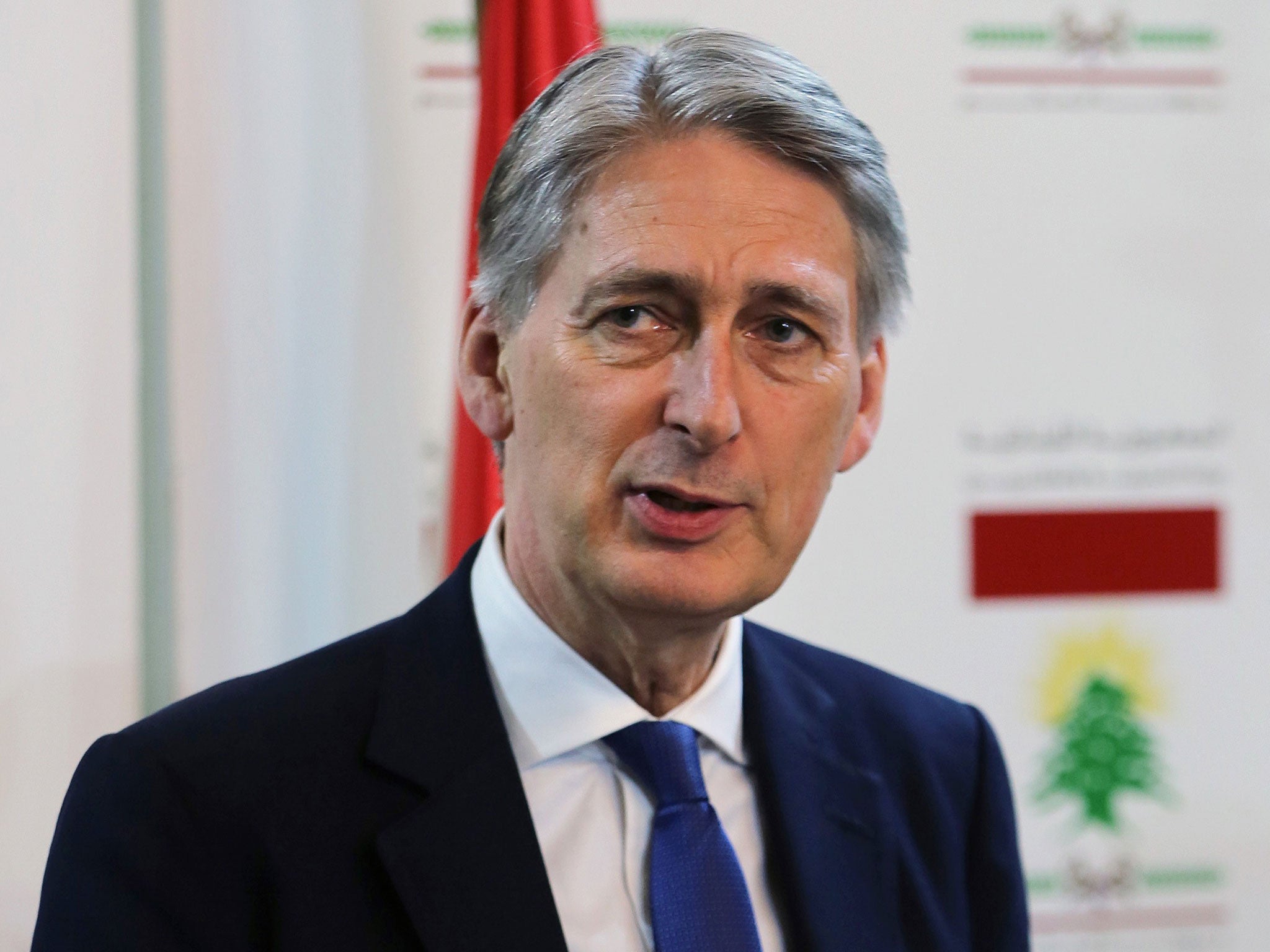Senior Tory accuses Foreign Secretary of being 'less than candid' about sending UK troops to Libya
Philip Hammond accused of writing letter designed to be 'wholly and deliberately misleading to the uninformed reader'

Foreign Secretary Philip Hammond is facing accusations of being “less than candid” about Britain’s position on sending ground troops to Libya.
The claims come amid reports that Libya’s new United Nations-backed government has said it does not want foreign military assistance, and are likely to intensify concern about Britain’s already heavily criticised involvement in the North African country.
Correspondence released by the Commons Foreign Affairs Committee has revealed its Conservative chairman Crispin Blunt has accused Mr Hammond of writing a letter designed to be "wholly and deliberately misleading to the uninformed reader".
The row follows a visit by committee members to Egypt and Tunisia last month during which they said they were told the UK would send 1,000 troops to Libya "in the near future" as part of a 6,000-strong international force being put together by Italy.
In his letter, Mr Hammond said no decisions had been made about any future British deployment.
"I have taken the precaution of checking with our embassies in Cairo and Tunis. They have confirmed that at no point did British diplomats brief you to this effect. Your assertions are wrong on a number of accounts," he wrote.
In his furious response, Mr Blunt, a former minister, explained why he considered this misleading.
He wrote: "As you are no doubt aware given your careful choice of words, the briefing came from another British source working at the direction of the defence attache and witnessed by British diplomats.”
Urging Mr Hammond to make a statement to the Commons "clarifying" the UK's current military involvement in Libya and its plans to deploy troops there, Mr Blunt added: "The Foreign Affairs Committee remains deeply concerned by potential British military involvement in Libya.
"The welcome candour of briefings by all whom we met in Cairo and Tunis contrasts sharply with your less-than-candid reply to my request for further detail on a rapidly developing situation that may require further active British engagement."
Further confusion surrounding any possible UK intervention has been created by Libya’s newly formed government of national unity reportedly rejecting foreign military assistance.
A British Government source told the Times that ministers in Tripoli feared Libya would be further destabilised by the presence of 6,000 British, French and Italian troops, who would have gone to the country to help train local armed forces.
“Even though there are Isis fighters all along the coast they seem more worried about the impact that foreign fighters would have on trying to deal with the situation with the east of the country," the source was quoted as saying.
The source added that there were now also doubts about plans for EU forces to deploy to Libyan territorial waters to help combat people trackers and reduce the flow of migrants to Europe.
“Permission has not yet been given for that either," the source said.
The Times quoted an unnamed British minister as saying that they hoped the new unity government would request foreign military aid once it was more firmly established.
“We are in a sensitive period," the minister reportedly said.
The apparent setbacks come weeks after Barack Obama criticised David Cameron for the UK’s role in allowing Libya to become a “shit show” after the fall of Muammar Gaddafi. The US President claimed European inaction following the initially successful military intervention against Gaddafi had allowed Libya to spiral out of control.
Created under a UN-brokered peace deal, Libya's new Presidential Council is supposed to replace the two warring administrations – one in Tripoli, the other in Tobruk – that sprung up after Gaddafi was deposed five years ago.
But when council members led by Libya’s Prime Minister-designate Fayez al-Sarraj arrived in Tripoli two weeks ago they did so by boat because they were worried they would be shot down if they tried to fly in.
One political analyst told Al Jazeera: “For now we have three governments. What happens next depends on whether both of the other governments will hand over power peacefully.”
A Foreign Office spokesman said there are no plans to deploy UK combat troops.
"As the Foreign Secretary has made clear, the UK continues to work with international partners on how to best support the new Libyan government. This includes discussions about a Libyan International Assistance Mission," he said.
"The Foreign Secretary has also been consistently clear that while no decisions have yet been taken, there are no plans to deploy combat troops and that planning has been focused on training Libyan security forces to provide their own security.
"It is up to the new Libyan Government to tell us what sort of help they want.”
The spokesman added that there the UK had so far received no official request for military help from the Libyans and no official rejection of assistance either.
The Ministry of Defence refused to comment on previous reports that small numbers of British special forces soldiers are already in Libya in an advisory capacity.
Subscribe to Independent Premium to bookmark this article
Want to bookmark your favourite articles and stories to read or reference later? Start your Independent Premium subscription today.

Join our commenting forum
Join thought-provoking conversations, follow other Independent readers and see their replies